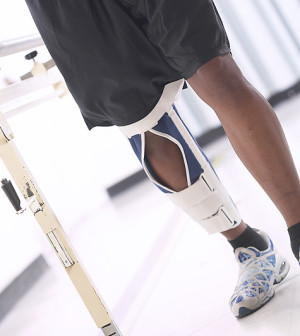- Could Your Grocery Store Meat Be Causing Recurring UTIs?
- Are You Making This Expensive Thermostat Error This Winter?
- Recognizing the Signs of Hypothyroidism
- 10 Strategies to Overcome Insomnia
- Could Artificial Sweeteners Be Aging the Brain Faster?
- Techniques for Soothing Your Nervous System
- Does the Water in Your House Smell Funny? Here’s Why
- Can a Daily Dose of Apple Cider Vinegar Actually Aid Weight Loss?
- 6 Health Beverages That Can Actually Spike Your Blood Sugar
- Treatment Options for Social Anxiety Disorder
Preemies May Have Stronger Immune Systems Than Suspected


A baby’s immune system is stronger than previously thought, a new study indicates.
Researchers analyzed blood samples collected from 28 very premature babies during their first weeks of life.
The results showed that the babies’ immune system T-cells could trigger an inflammatory response to bacteria. According to background information from the study, it had been thought that a newborn’s immature immune system could not produce this type of inflammatory response, which is normally seen in adults.
“We found that babies have an in-built antibacterial defense mechanism that works differently to adults, but nevertheless may be effective in protecting them. This may also be a mechanism by which the baby protects itself in the womb from infections of the mother,” study author Dr. Deena Gibbons, of the department of immunobiology at King’s College London in England, said in a college news release.
“The next stage of our work will be to better understand the pathways that result in the immune cells of newborns being so different to those in adults,” she added.
The study was published online recently in Nature Medicine.
The T-cell activity in newborns could offer a target for developing new treatments to boost premature babies’ immune systems to help protect them from potentially life-threatening infections, the researchers said.
More information
The U.S. National Institute of Allergy and Infectious Diseases has more about the immune system.
Source: HealthDay
Copyright © 2026 HealthDay. All rights reserved.










